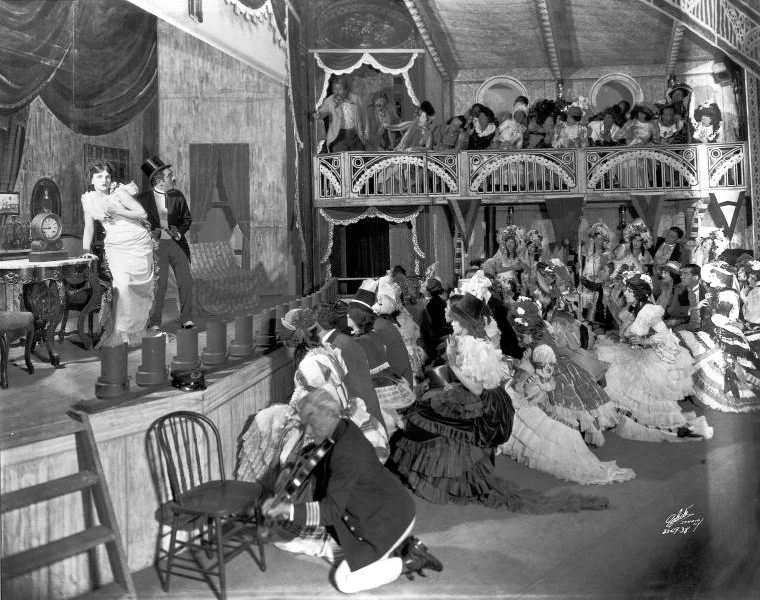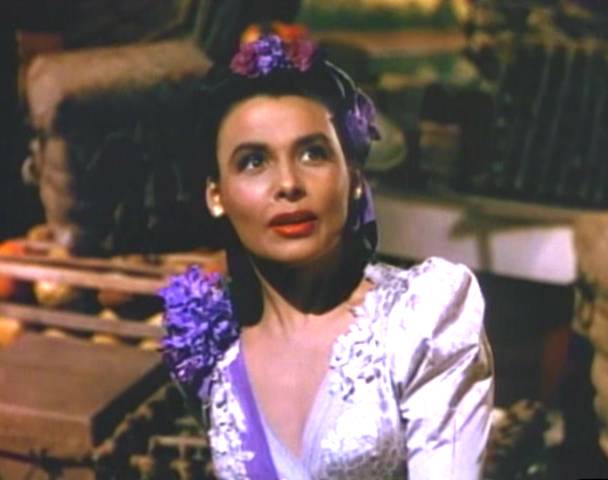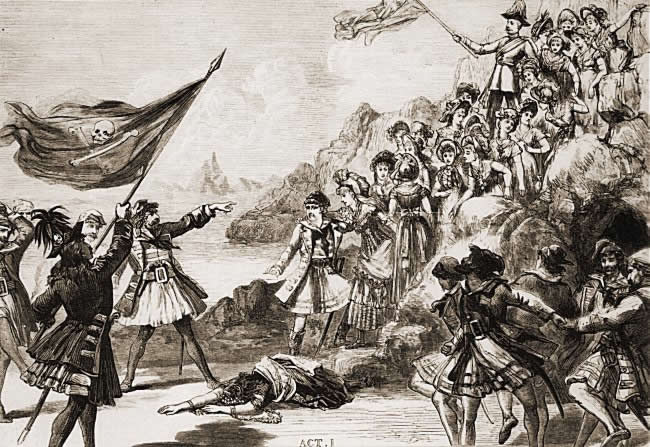|
Leading Lady (album)
''Leading Lady'' is the debut studio album by Australian singer Marina Prior, featuring the Melbourne Symphony Orchestra conducted by Brian Stacey. The album was released in November 1991 and peaked at number 15 on the ARIA Albums Chart in December and was certified platinum. Track listing ; CD/ Cassette # "I Dreamed a Dream" – from ''Les Misérables (musical)'' # "If I Loved You" – from ''Carousel (musical)'' # "Wishing You Were Somehow Here Again" – from ''The Phantom of the Opera (1986 musical)'' # "Moonfall" – from ''The Mystery of Edwin Drood (musical)'' # "All I Ask of You" – from ''The Phantom of the Opera (1986 musical)'' # "Before I Gaze at You Again" – from ''Camelot (musical)'' # "Losing My Mind" – from ''Follies'' # "There's Gotta Be Something Better Than This" – from ''Sweet Charity'' # "Poor Wandering One" – from ''The Pirates of Penzance'' # "Can't Help Lovin' Dat Man" – from ''Show Boat'' # "The Last Man in My Life" – from ''Song and Dance ... [...More Info...] [...Related Items...] OR: [Wikipedia] [Google] [Baidu] |
Marina Prior
Marina Prior (born 18 October 1963) is an Australian soprano and actress with a career mainly in musical theatre. From 1990 to 1993, she starred as the original Christine Daaé in the Australian premiere of ''The Phantom of the Opera'', opposite Anthony Warlow and later Rob Guest. Early life Prior was born in Port Moresby in the Territory of Papua and New Guinea, Australia, where her father was working in the shipping industry. Her parents were members of the local Gilbert and Sullivan Society. The family returned to Australia when she was a young child and she grew up in Melbourne, where she attended Syndal South Primary School and Korowa Anglican Girls' School. She began to take singing lessons at the age of twelve and also learnt piano, flute and guitar. In 1982 Prior started studying for a Bachelor of Music degree at the Melbourne State College (which later became a faculty of the University of Melbourne). To raise money, she worked in coffee shops and tried busking. ... [...More Info...] [...Related Items...] OR: [Wikipedia] [Google] [Baidu] |
Camelot (musical)
''Camelot'' is a 1960 musical by Alan Jay Lerner (book and lyrics) and Frederick Loewe (music). It is based on the King Arthur legend as adapted from T. H. White's 1958 novel ''The Once and Future King''. The original production, directed by Moss Hart with orchestrations by Robert Russell Bennett and Philip J. Lang, ran on Broadway for 873 performances, winning four Tony Awards. It starred Richard Burton as Arthur, Julie Andrews as Guinevere, and Robert Goulet as Lancelot. It spawned several revivals, foreign productions, and the 1967 Warner Bros. film ''Camelot''. The musical has become associated with the Kennedy Administration, which is sometimes called the "Camelot Era," due to an interview with Jackie Kennedy in which she compared her husband's presidency to King Arthur's reign, specifically mentioning his fondness for the musical and particularly the closing lyrics which end the song "Camelot" and also form the ending of the musical itself. Background In 1959, ... [...More Info...] [...Related Items...] OR: [Wikipedia] [Google] [Baidu] |
1991 Debut Albums
File:1991 Events Collage.png, From left, clockwise: Boris Yeltsin, elected as Russia's first president, waves the new flag of Russia after the 1991 Soviet coup d'état attempt, orchestrated by Soviet hardliners; Mount Pinatubo erupts in the Philippines, making it the second-largest volcanic eruption of the 20th century; MTS Oceanos sinks off the coast of South Africa, but the crew notoriously abandons the vessel before the passengers are rescued; Dissolution of the Soviet Union: The Soviet flag is lowered from the Kremlin for the last time and replaced with the flag of the Russian Federation; The United States and soon-to-be dissolved Soviet Union sign the START I Treaty; A tropical cyclone strikes Bangladesh, killing nearly 140,000 people; Lauda Air Flight 004 crashes after one of its thrust reversers activates during the flight; A United States-led coalition initiates Operation Desert Storm to remove Iraq and Saddam Hussein from Kuwait, 300x300px, thumb rect 0 0 200 200 ... [...More Info...] [...Related Items...] OR: [Wikipedia] [Google] [Baidu] |
The Wizard Of Oz (1939 Film)
''The Wizard of Oz'' is a 1939 American Musical film, musical fantasy film produced by Metro-Goldwyn-Mayer (MGM). An adaptation of L. Frank Baum's 1900 children's fantasy novel ''The Wonderful Wizard of Oz'', the film was primarily directed by Victor Fleming (who left the production to take over the troubled ''Gone with the Wind (film), Gone with the Wind''), and stars Judy Garland, Frank Morgan, Ray Bolger, Bert Lahr, Jack Haley, Billie Burke and Margaret Hamilton (actress), Margaret Hamilton. Noel Langley, Florence Ryerson, and Edgar Allan Woolf received credit for the screenplay, but others made uncredited contributions. The music was composed by Harold Arlen and adapted by Herbert Stothart, with the lyrics written by Yip Harburg, Edgar "Yip" Harburg. Characterized by its use of Technicolor, fantasy storytelling, musical score, and memorable characters, the film was considered a critical success and was nominated for six Academy Awards, including Academy Award for Best Pictur ... [...More Info...] [...Related Items...] OR: [Wikipedia] [Google] [Baidu] |
Aspects Of Love
''Aspects of Love'' is a musical with music and book by Andrew Lloyd Webber, and lyrics by Don Black and Charles Hart. It is based on the 1955 novella of the same name by David Garnett. The piece focuses on the romantic entanglements of actress Rose Vibert, her admiring fan Alex Dillingham, his underage cousin Jenny, his uncle George, and George's mistress, sculptor Giulietta Trapani, over a period of 17 years. The "aspects" of the title refers to the many forms that love takes in the show: love between couples, both as romantic infatuation and as married people; children and their parents; and hints of same-sex attraction (Giulietta and Rose). Lloyd Webber was introduced to ''Aspects of Love'' in 1979, when he and Tim Rice were approached to write a few songs for a proposed film version. When nothing came of it, he suggested to Trevor Nunn that they collaborate on a stage adaptation. In 1983, they presented a cabaret of numbers they had written, but it was not until five yea ... [...More Info...] [...Related Items...] OR: [Wikipedia] [Google] [Baidu] |
Love Changes Everything (song)
"Love Changes Everything" is a song from the musical ''Aspects of Love'', composed by Andrew Lloyd Webber, with a lyric written by Charles Hart and Don Black. It was first sung in the musical by the character Alex Dillingham, which was originated by Michael Ball in both the London and Broadway casts. The song was released as a single in 1989, also sung by Ball, and stayed on the UK Singles Chart for 15 weeks, peaking at No. 2 and becoming Ball's signature tune. The song was later featured on Ball's 1992 self-titled debut album and ''Love Changes Everything: The Collection''. Background In the prologue to ''Aspects of Love'', a young Englishman, Alex, is lovestruck by a French actress, Rose. This upends his world, and he sings that "Love changes everything ... How you live and / How you die" for better or for worse. He notes that love "Makes fools of everyone" and concludes that, once love strikes, "Nothing in the / World will ever / Be the same." Musically, it is a "simple, ... [...More Info...] [...Related Items...] OR: [Wikipedia] [Google] [Baidu] |
Mack And Mabel
''Mack and Mabel'' (often stylized as Mack & Mabel) is a musical with a book by Michael Stewart and music and lyrics by Jerry Herman. The plot involves the tumultuous romantic relationship between Hollywood director Mack Sennett and Mabel Normand (transformed from an artist's model to a waitress from Flatbush, Brooklyn for the musical), who became one of his biggest stars. In a series of flashbacks, Sennett relates the glory days of Keystone Studios from 1911, when he discovered Normand and cast her in dozens of his early "two-reelers", through his creation of Sennett's Bathing Beauties and the Keystone Cops to Mabel's death from tuberculosis in 1930. The original 1974 Broadway production produced by David Merrick starred Robert Preston and Bernadette Peters. It received eight Tony Award nominations, including Best Musical, but did not win any. There was no nomination for Jerry Herman's score. Although the original production closed after only eight weeks, the songs were p ... [...More Info...] [...Related Items...] OR: [Wikipedia] [Google] [Baidu] |
Song And Dance
''Song and Dance'' is a musical comprising two acts, one told entirely in "Song" and one entirely in "Dance", tied together by a unifying love story. The "Song" act is ''Tell Me on a Sunday'', with lyrics by Don Black and music by Andrew Lloyd Webber, about a young British woman's romantic misadventures in New York City and Hollywood. The "Dance" act is a ballet choreographed to ''Variations'', composed by Andrew Lloyd Webber for his cellist brother Julian, which is based on the A Minor Caprice No. 24 by Paganini. Background The ''Song'' portion was written specifically for Marti Webb, and presented at the Sydmonton Festival in the summer of 1979. It was subsequently recorded and aired as a one-hour television special by the BBC the following January. The ''Dance'' portion was recorded in 1978, and nearly became incorporated into '' Cats''. The opening sequence was utilized as the theme music for London Weekend Television's ''South Bank Show''. Producer Cameron Mackintos ... [...More Info...] [...Related Items...] OR: [Wikipedia] [Google] [Baidu] |
Show Boat
''Show Boat'' is a musical with music by Jerome Kern and book and lyrics by Oscar Hammerstein II. It is based on Edna Ferber's best-selling 1926 novel of the same name. The musical follows the lives of the performers, stagehands and dock workers on the ''Cotton Blossom'', a Mississippi River show boat, over 40 years from 1887 to 1927. Its themes include racial prejudice and tragic, enduring love. The musical contributed such classic songs as "Ol' Man River", " Make Believe", and " Can't Help Lovin' Dat Man". The musical was first produced in 1927 by Florenz Ziegfeld. The premiere of ''Show Boat'' on Broadway was an important event in the history of American musical theatre. It "was a radical departure in musical storytelling, marrying spectacle with seriousness", compared with the trivial and unrealistic operettas, light musical comedies and "Follies"-type musical revues that defined Broadway in the 1890s and early 20th century. According to ''The Complete Book of Light Opera ... [...More Info...] [...Related Items...] OR: [Wikipedia] [Google] [Baidu] |
Can't Help Lovin' Dat Man
"Can't Help Lovin' Dat Man" with music by Jerome Kern, and lyrics by Oscar Hammerstein II, is one of the most famous songs from their classic 1927 musical play ''Show Boat'', adapted from Edna Ferber's 1926 novel. Context The song, written in a blues tempo, is sung in the show by several characters, but is most closely associated with the character Julie, the biracial leading lady of the showboat ''Cotton Blossom''. It is Julie who is first heard singing the song – to Magnolia, the daughter of Cap'n Andy Hawks and his wife Parthenia (Parthy), owners of the showboat. In the musical's plot, the number is supposed to be a song familiar to African-Americans for years, and this provides one of the most dramatic moments in the show. When Queenie, the black cook, comments that it is strange that light-skinned Julie knows the song because only black people sing it, Julie becomes visibly uncomfortable. Later, we learn that this is because Julie is " passing" as white – she and her wh ... [...More Info...] [...Related Items...] OR: [Wikipedia] [Google] [Baidu] |
The Pirates Of Penzance
''The Pirates of Penzance; or, The Slave of Duty'' is a comic opera in two acts, with music by Arthur Sullivan and libretto by W. S. Gilbert, W. S. Gilbert. Its official premiere was at the Fifth Avenue Theatre in New York City on 31 December 1879, where it was well received by both audiences and critics. Its London debut was on 3 April 1880, at the Opera Comique, where it ran for 363 performances. The story concerns Frederic, who, having completed his 21st year, is released from his apprenticeship to a band of tender-hearted pirates. He meets the daughters of Major-General Stanley, including Mabel, and the two young people fall instantly in love. Frederic soon learns, however, that he was born on the 29th of February, and so, technically, he has a birthday only once each leap year. His indenture specifies that he remain apprenticed to the pirates until his "twenty-first birthday", meaning that he must serve for another 63 years. Bound by his own sense of duty, Freder ... [...More Info...] [...Related Items...] OR: [Wikipedia] [Google] [Baidu] |




